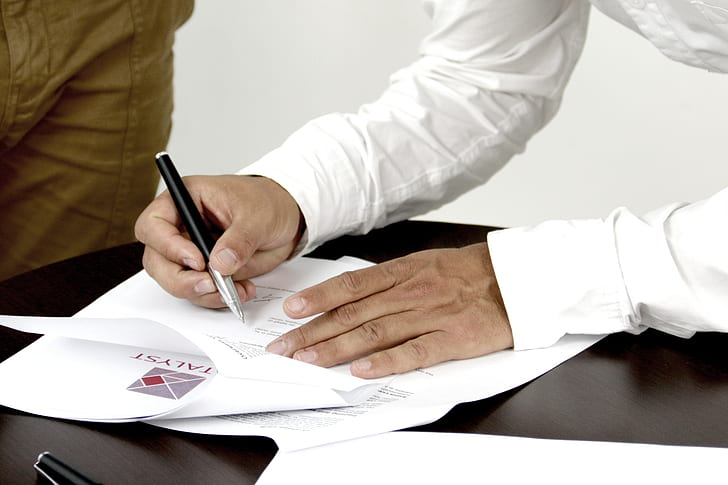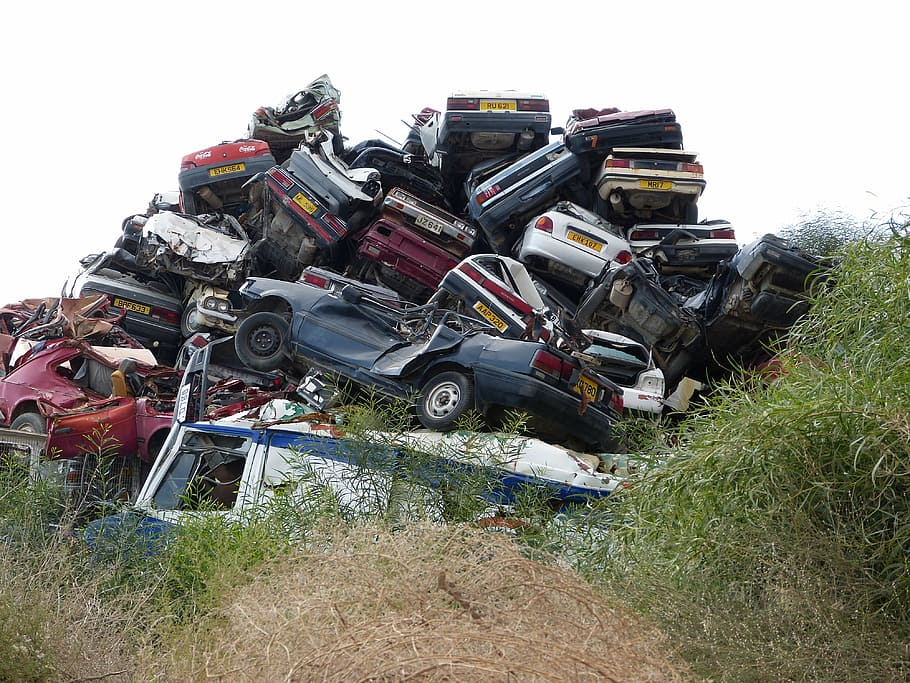How to Create a Bill of Sale for Junk Car in 7 Simple Steps
Is it finally time to say goodbye to that old junk car taking up valuable space in your driveway? Ensuring a smooth and hassle-free transaction is crucial, and having a proper “bill of sale for junk car” is the key to a successful sale. This comprehensive guide will walk you through creating a bill of sale for your junk car, covering all necessary steps and legal considerations.
Short Summary
- A bill of sale is essential for selling a junk car, providing legal protection and proof of ownership.
- Completing the title transfer requires verifying documents and signing & exchanging the bill of sale.
- Post-sale responsibilities include notifying DMV & securely storing all required records to ensure compliance with regulations.
Understanding the Importance of a Bill of Sale for Junk Cars

When it comes to selling a junk car, one might wonder why a bill of sale is even necessary. After all, the vehicle is no longer in prime condition, and the transaction might seem straightforward. However, having a bill of sale for a junk car serves a critical purpose: it establishes legal ownership and helps protect both parties during the transaction. In most cases, a bill of sale is essential for verifying and transferring ownership, which helps to prove ownership.
Failure to have a bill of sale when selling salvage vehicles, such as junk cars, could lead to tax implications or difficulty with title transfer. Moreover, many junkyards require a certificate of title, salvage certificate, non-repairable certificate, or other junk title to accept the car. So, having a bill of sale not only establishes ownership, but also ensures a smooth transaction process.
Proving Ownership
A bill of sale serves as proof of a sale and transfer of ownership of a vehicle. To solidify the transaction, a title, which is a legal document that serves as proof of ownership of a vehicle, is necessary. In some cases, a previous registration can also be used to prove ownership. Providing these documents during the sale guarantees that the vehicle being sold is not stolen and legally belongs to the seller.
Having a bill of sale that includes all necessary information aids in obtaining a bonded title in the event that the original title is lost. This is especially crucial when selling a junk car, as it not only establishes legal ownership of the vehicle, but also helps protect both the buyer and the seller from potential disputes and legal issues.
Transferring Ownership
The bill of sale for a junk car is a vital document that facilitates the transfer of ownership from the seller to the buyer. To sell your junk car, completing the title with the buyer’s name and address, along with the required documentation, is necessary. In most cases, it is possible to sell a junk car without its title. Other forms of proof of ownership like registration or a bill of sale may be needed in such situations.
Junk car buyers act as a link between owners of junk cars and junkyards which recycle them. They facilitate the transfer of these vehicles from one place to another. They can provide more cash for cars, as they usually offer their own junk car removal services, thus keeping towing costs low. In such transactions, having a properly executed bill of sale ensures a smooth transfer of ownership and reduces the risk of potential disputes or legal complications.
Preparing the Necessary Documents for a Junk Car Sale

Before selling a junk car, it’s essential to gather all necessary documents for a successful transaction. Proof of ownership is mandatory to complete the process, such as a driver’s license, state ID, or passport. An old vehicle registration is also required. Once the sale is completed, the buyer will pay the agreed-upon amount.
It is not mandatory to possess a title to sell a junk car; however, it is critical to ensure the car does not have a lien on the title. If the vehicle has a lien, you must settle it first before receiving money from the sale. In case you’re not satisfied with offers from local junkyards, consider attempting a private sale or looking into selling the vehicle to a junk car buyer.
Locating the Vehicle’s Title
The title is a crucial document that confirms ownership of the vehicle and is necessary for the sale and transfer of the car to the new owner. If you can’t locate the vehicle’s title or it’s lost, you can contact your state’s DMV or BMV to request a replacement title to be issued to you by mail. In many states, there is a tear-off portion of the title that can be filled out and sent to the DMV.
Applying for a duplicate title is an alternative solution if the original title is lost. By contacting your state’s DMV or BMV and providing the required details, you can obtain a replacement title and proceed with the sale of your junk car.
Handling a Car Without a Title
Selling a car without a title may seem challenging, but there are alternative options available. In most states, it is illegal to sell a car without a title, but certain states may offer exemptions or alternative titling options. It is advisable to contact local junkyards and inquire about their process for junking a car without a title.
In certain states, ownership can be substantiated with an outdated registration and driver’s license, allowing for the sale of a junk car without a title. By exploring these alternative options and complying with state-specific regulations, you can successfully sell your car without a title and still provide the necessary proof of ownership.
Writing the Bill of Sale for a Junk Car
Creating a bill of sale for a junk car is a vital step in finalizing the transaction. The bill of sale should include the date of sale, a description of the car, and the names and addresses of the buyer and seller. Additionally, certain states may necessitate a Junk Title Application or a Bill of Sale for Scrap Metal Operators.
A well-prepared bill of sale not only establishes ownership, but also ensures a smooth transaction process. By including all necessary information in the bill of sale, you can avoid potential disputes and legal complications that may arise from an incomplete or incorrect document.
Including Relevant Information
A comprehensive bill of sale should include all relevant information to ensure a smooth transaction. This includes the date of sale, as well as the buyer and seller’s identifying information, such as name, address, and driver’s license number. Additionally, it’s important to include contact information for both the buyer and seller, such as phone number and email address.
The bill of sale should also require signatures from both the buyer and seller. In certain states, the bill of sale must be notarized in order to be considered valid. By including all relevant information, you can establish legal ownership and protect both parties during the transaction.
Using a Template or Creating Your Own
To create a bill of sale for a junk car, you can either use a template or draft your own document. Templates can be found on various websites that offer free templates. These templates usually include all the necessary fields and can be easily filled out with the required information.
If you prefer to create your own bill of sale, make sure to include the buyer and seller’s name and address, the vehicle’s make, model, year, and VIN, the purchase price, and the date of sale. It’s also important to consult your state’s DMV to confirm that the bill of sale meets all relevant requirements.
By using a template or creating your own document, you can ensure a seamless transaction and protect the interests of both parties involved.
Legal Considerations When Selling a Junk Car
Selling a junk car involves various legal considerations that you must be aware of to ensure a smooth and compliant transaction. Some of these considerations include notarization requirements and state-specific regulations pertaining to the sale of a junk car. Being cognizant of these legal aspects can help you avoid potential disputes, legal complications, and even tax implications.
It is also important to understand lemon laws, which are regulations that safeguard consumers when purchasing a vehicle in unsatisfactory condition. By complying with these laws and ensuring that the bill of sale meets all legal requirements, you can ensure a successful sale of your junk car.
Notarization Requirements
The notarization requirements for a junk car sale may vary depending on your state. Some states necessitate notarized signatures from both the buyer and seller, while others may not require notarization. To determine if your state requires notarization of the bill of sale, it’s best to contact your local DMV for more information.
If your state requires notarization, be sure to have the bill of sale notarized by a registered notary public. This process usually involves presenting a valid driver’s license or other identification and paying a small fee to the notary. Notarization provides an additional layer of security to the transaction, ensuring that the bill of sale is legally binding and valid.
State-Specific Regulations
As regulations governing the sale of junk cars may vary from state to state, it is essential to investigate the applicable regulations in your location prior to selling a junk car. You can access the regulations in your state by visiting the website of the Department of Motor Vehicles or by contacting your local motor vehicle office.
By understanding these regulations, you can ensure that all necessary paperwork is properly completed and filed, the transfer of ownership is conducted in accordance with the rules, and all other relevant information is taken into consideration. Familiarizing yourself with state-specific regulations can help you avoid potential legal complications and ensure a successful sale.
Finalizing the Sale and Transferring Ownership

After gathering all necessary documents and preparing the bill of sale, it’s time to finalize the sale and transfer ownership of your junk car. This process involves verifying the documents and vehicle condition, signing and exchanging the bill of sale, and notifying the Department of Motor Vehicles.
By completing these steps, both the buyer and seller can ensure a smooth transaction process. Additionally, following through with post-sale responsibilities can help protect both parties from potential disputes and legal issues that may arise from an incomplete or incorrect transaction.
Verifying Documents and Vehicle Condition
Before finalizing the sale, it’s important to check all ownership documents, such as the car title and registration, to ensure they are accurate and up-to-date. Also, ensure the vehicle’s condition matches the description provided in the bill of sale. This step can help avoid any misunderstandings or disputes between the buyer and seller.
If the junkyard does not provide towing services, you may need to contact local towing companies and select the most suitable towing service. Make sure you are available when the vehicle is delivered to the junkyard. Sign over ownership documents and collect your payment.
Signing and Exchanging the Bill of Sale
With all documents verified and the vehicle condition assessed, it’s time to sign and exchange the bill of sale to complete the transaction. Both the buyer and seller should sign the bill of sale, ensuring that all information is accurate and complete.
After signing the bill of sale, exchange the document with the buyer, and each party should retain a signed copy for their records. This step finalizes the transaction and officially transfers ownership of the junk car to the buyer.
Post-Sale Responsibilities and Notifications
Once the sale is completed, there are still a few post-sale responsibilities to fulfill. These include notifying the DMV of the sale and retaining records of the transaction. By completing these steps, you can ensure that all necessary paperwork is properly filed and protect yourself from any potential disputes or legal issues that may arise from the sale.
Fulfilling these post-sale responsibilities is not only essential for legal compliance, but also provides peace of mind knowing that the sale of your junk car has been properly documented and registered with the appropriate authorities.
Notifying the DMV
Informing the DMV of the sale is a crucial step in the process. It is necessary to notify the DMV within a specified period, typically ranging from 15-30 days, after the sale of a junk car. This can be done by submitting a Notice of Transfer and Release of Liability (NRL) form to the DMV, ensuring that their records are updated and that you are no longer liable for the vehicle.
To notify the DMV of the sale, reach out to the DMV in the state where the car was sold and provide the pertinent information, including the buyer’s name and address, the vehicle’s make, model, and year, and the date of sale. This step is crucial for avoiding any future liability associated with the vehicle.
Retaining Records
Keeping a copy of the signed bill of sale, as well as the following documents like the title and registration, is essential for your records and future reference. Retaining these records can help verify ownership of the vehicle and provide evidence of the sale should any disputes arise.
To ensure the safekeeping of these records, including your valid driver’s license, store them in a secure location, such as a fireproof safe or a secure online storage system. In the event of lost records, contact the DMV or other relevant authorities to obtain a replacement.
Summary
Selling a junk car may seem like a daunting task, but with the right knowledge and preparation, it can be a smooth and hassle-free process. By understanding the importance of a bill of sale, gathering necessary documents, creating a comprehensive bill of sale, complying with legal considerations, and fulfilling post-sale responsibilities, you can successfully sell your junk car and enjoy the benefits of a well-executed transaction. So, why wait? Get started today and turn that old junk car into cash!
Frequently Asked Questions
What is the main purpose of a bill of sale for a junk car?
A bill of sale for a junk car is used to create legal ownership and protect both the buyer and seller during the transaction.
It is important to make sure that all the necessary information is included in the bill of sale, such as the buyer and seller’s names, the date of the sale, the price, and a description of the item.
Can I sell a junk car without a title?
Yes, you can usually sell a junk car without a title, though other forms of proof of ownership are usually necessary.
For example, you may need to provide a bill of sale, registration, or other documents that prove you are the rightful owner of the vehicle.
Are notarization requirements necessary for a junk car bill of sale?
Notarization may be necessary for a junk car bill of sale, depending on your state’s requirements. It is recommended to contact your local DMV to confirm the requirement.





 Who We Are
Who We Are Coverage Area
Coverage Area Donate
Donate